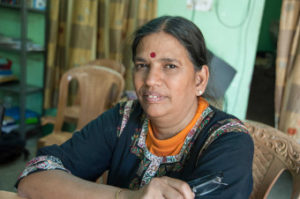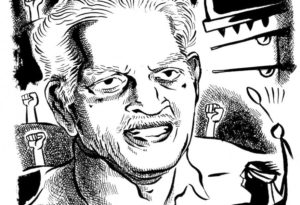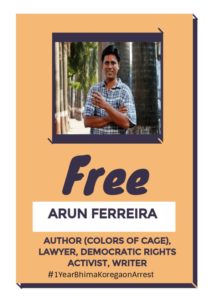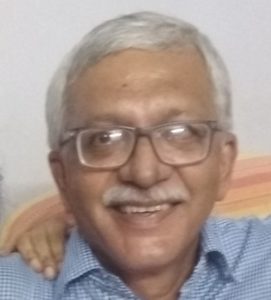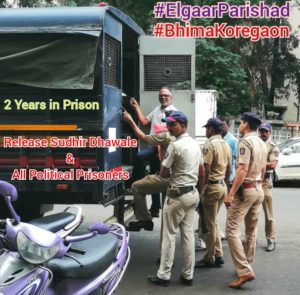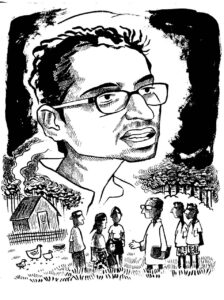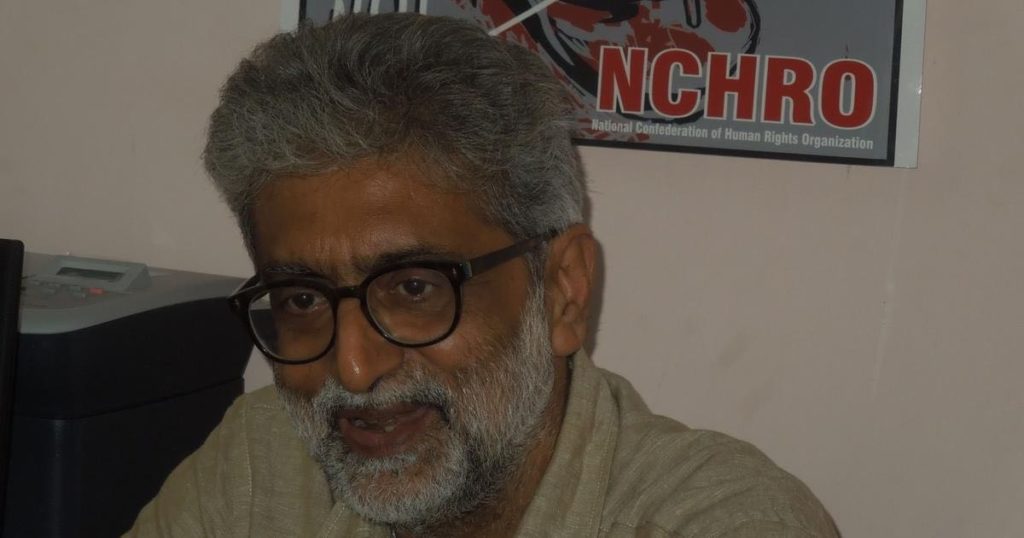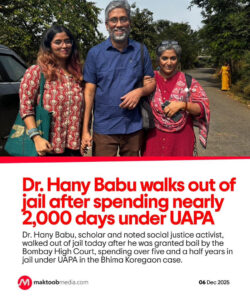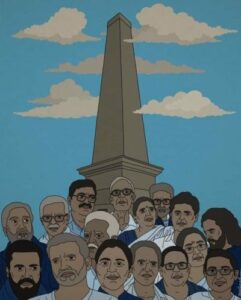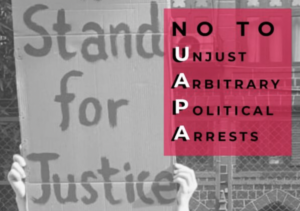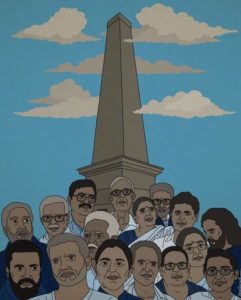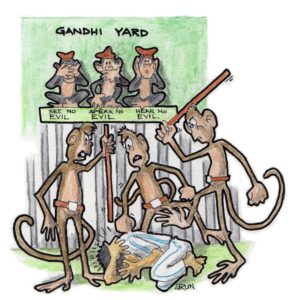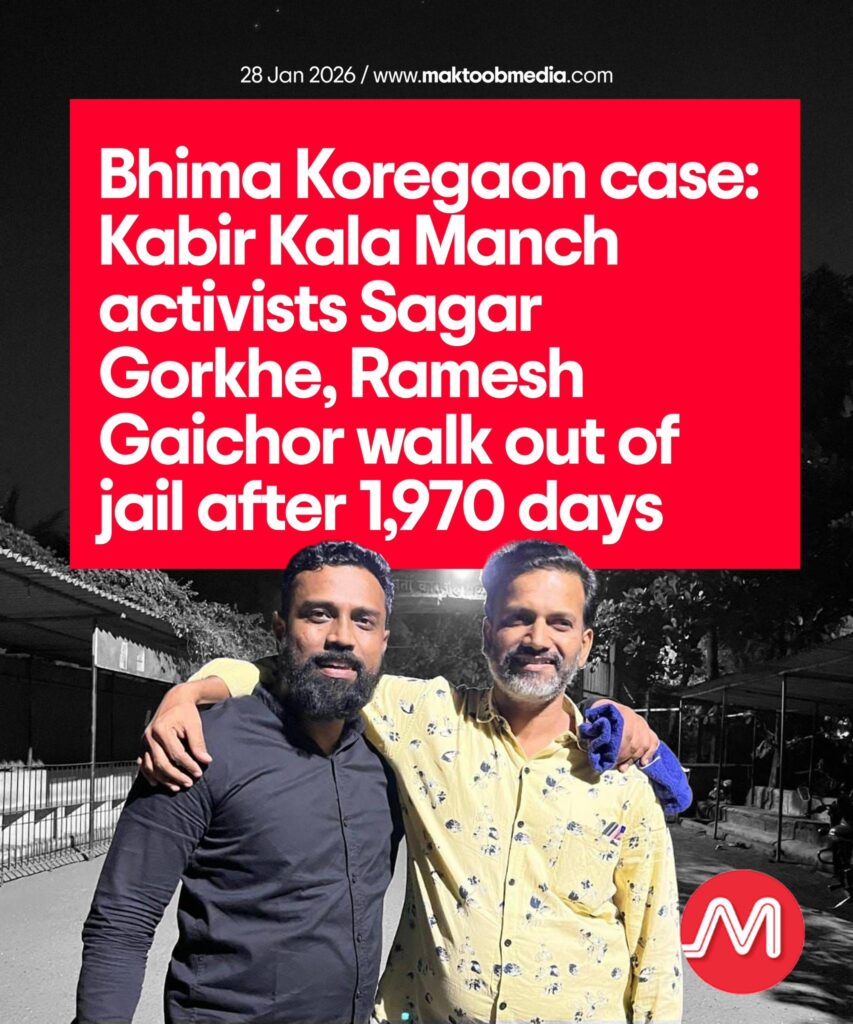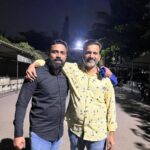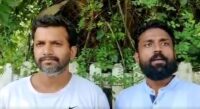Who is Sudha Bharadwaj?
Sudha Bharadwaj
Nov 2019
Maaysha, Sudha’s daughter: “If fighting for the rights of adivasis, fighting for workers and peasants, fighting against repression and exploitation and giving up one s whole life for them is being a naxalite then I guess naxalites are pretty good.”
“The 6th Annual Harvard Law International Women’s Day Portrait Exhibit showcases the astounding contributions of women around the world to the areas of law and policy. The honorees — each of whom were nominated by HLS students, faculty or staff — are powerful voices in their respective fields, whether they are sitting on a high court bench, standing in front of a classroom, or marching in the streets.”
Or whether they are sitting in jail.
Advocate Sudha Bharadwaj is a 2019 honoree of the Harvard Law International Women’s day exhibition and is sitting in a jail cell in Pune. How did these conflicting positions come about?
Sudha grew up to illustrious parents, and spent the first part of her life as an American citizen. In the next 30 years of her life, she worked tirelessly in Chhattisgarh Mukti Morcha (CMM) as a trade unionist and eventually as a lawyer after the CMM, hamstrung in their legal battles by unscrupulous lawyers, found in her the courage and integrity needed to challenge powerful opponents in the courtrooms.
She founded Janhit, giving rigorous legal aid to several industrial workers, villages fighting acquisition and mining, Adivasi communities fighting for forest rights, environmental cases and PIL litigation. Janhit led cases against powerful industrial houses such as Jindal, Vedanta, BALCO, Lafarge Holcim, D.B. Power, Vandana Vidyut, SECL, Bhilai Steel Plant, Monnet Steel, Adani, Hindalco, Grasim, Ultratech and others.
Sudha was instrumental in rebuilding the PUCL group after the arrest and incarceration of its then-President, Dr. Binayak Sen. During this time, she was appointed as the General Secretary of People’s Union for Civil Liberties (PUCL) and worked on issues of human trafficking and attacks on minorities. She also assisted families of victims of human rights violations looked upon as casualties in the conflict zone of Bastar and supported journalists and activists who dared raise their voices and pen against the State excesses in Bastar. She was elected recently as Vice President of the Indian Association of Peoples’ Lawyers (IAPL) and was active in campaigns against attacks on Dalit and human rights lawyers in Chhattisgarh and facilitated an IAPL fact-finding into it.
Sudha was arrested from her Faridabad home which she was sharing with her daughter, Maaysha. During this time, she was a Visiting Professor at the National Law University Delhi, taking Seminar Courses on tribal rights, land acquisition, and the Fifth and Sixth Schedules. This year she was to have taught “Law and Justice in a Globalising World”. Sadly, and ironically, she can’t teach the class as she is in jail. The loss, the students inform us, is all theirs.
Her daughter Maaysha, has in several letters candidly brought to fore Sudha’s tireless spirit and her commitment to her work, “If fighting for the rights of Adivasis, fighting for workers and peasants, fighting against repression and exploitation and giving up one’s whole life for them is being a Naxalite then I guess Naxalites are pretty good.”
Guneet Ahuja, Advocate, Delhi, in an open letter writes about Sudha, “On my first meeting with Sudha ji, I asked her about the competing narratives regarding the condition of indigenous communities in Bastar. Her reply left a deep impact on me: “For a pedestrian on a narrow lane, the car driver is causing the trouble. For the car driver, the pedestrian is the nuisance. Your perspectives change based on where you are placed.”
Sudha is the pedestrian along with all the people she fights for. She believes the road belongs to us. The State is the car who doesn’t want nuisance pedestrians in the way, believes the road belongs to it, and wants it lined with the businesses of its cronies. To the State, Sudha belongs in jail. To us, she is a defender of human rights.
“If you try to be safe and in the middle, you will never succeed.”
Sudha, The Wire
Sudha Bharadwaj Speaks – A Life in Law and Activism
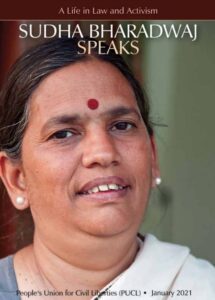
Publisher: Peoples Union for Civil Liberties (PUCL)
Edition: January 2021
Language: English
Sudha Bharadwaj’s interview by: Darshana Mitra and Santanu Chakraborty
Pictures credit: PUCL
Cover Design / Layout: Vinay Jain
Paperback: 316 pages
PDF copy: Sudha Bharadwaj speaks – A Life in Law and Activism (PUCL, Jan 2021)
…
